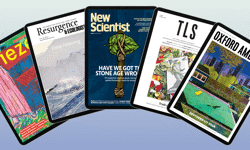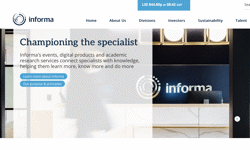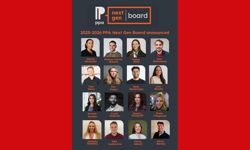
Launched in 1994, MGP is a specialist publisher dedicated to promoting best practice in healthcare, working with professional bodies to summarise best practice clinical guidance.
Its titles include Guidelines, which is available in print, online and as an app. Along with Guidelines spin-offs, such as Guidelines in Practice and Guidelines for Pharmacy, MGP also runs Guidelines Live – its flagship annual event.
Originally working to an ad-funded print model, MGP today generates two thirds of its revenues from multi-platform projects and events, with its main clients being the pharma industry.
MGP was already on what he describes as “a rapid route” to digital transformation. Even so, until 2020, its approach to events was to stage them in the real world.
In 2019, the year before the pandemic struck, MGP successfully expanded Guidelines Live and, at the same time, converted it from free to paid-for.
“We’d carried out a number of single day events, and they’d been free to attend. And they’d had good delegate registrations but the attrition between numbers signing up and those actually attending was quite high,” Eisenstadt recalls.
“When we decided we would move to a two day event at Olympia, we wanted to be sure we had attendance that was close to but not above capacity. We didn’t want a high attrition rate, so we looked at potentially charging.”
He continues: “We researched charging models and found a sweet spot which wouldn’t discourage registration but would encourage attendance. We heavily promoted the event at a full, typical industry rate but offered discounts for our regular website users.
“We got a really good registrations level and significantly reduced the drop-out rate. We ended up with record attendance pretty close to capacity that generated significant revenue. It worked really well.
“It was all about making our regular users feel valued, and our previous attendees were keen and happy to pay. But you do have to explain whatever change you are making, as well as making sure that what you do remains worthwhile.”
We researched charging models and found a sweet spot which wouldn’t discourage registration but would encourage attendance.
Switch to virtual
The pandemic last year was the predictable trigger for Guidelines Live pivoting to virtual. Eisenstadt readily admits he would not have done so had it not been for the pandemic, but in going virtual, he significantly improved the event’s profitability. And from this, he believes, there are a number of lessons to be learned.
Safeguarding sponsors’ interests was a priority from the start.
“We didn’t want to put on an event that went wrong, not least because many of the sponsors lined up were our long-term partners in terms of advertising and project support, so our priority was keeping our sponsors and ensuring a great experience,” he explains.
A close eye was therefore kept on the area MGP most wanted to deliver on: sponsored sessions. And choosing the right virtual conference platform provider was a critical first step.
“We got a tremendous provider and had a really well-organised event. It looked great. We had record attendance, fantastic engagement, great feedback and all at a fraction of the cost of a face to face event,” Eisenstadt says.
Don’t skimp, he advises: “It’s going to cost less than the face to face equivalent, and is not worth compromising.”
Convincing exhibitors to go virtual was a challenge, he admits, as it was seen as something new and therefore high risk. So, MGP offered sponsors a risk-share model to ease sponsors’ concerns, pricing participation according to pre-agreed KPIs.
Close attention was also paid to ensuring delegates had really good reasons to visit sponsors’ virtual stands. This meant optimising great content they could access by doing so, and carefully choreographing promotional messages to remind them during their visit.
To minimise the risk of technological failures, meanwhile, speakers’ sessions were pre-recorded with Q&As conducted live. This ensured a responsive element, while allowing MGP to run recorded content post the event, some of which was sold as premium content, too.
The pandemic also resulted in the rapid expansion of MGP’s webinar programme which has grown ten-fold in the last twelve months. The pharma industry, with their field sales forces stuck at home and unable to do face to face presentations, have leapt at the opportunity for direct engagement.
“Webinars have therefore been extremely successful. And we’ve made them free to attend as the primary model is sponsored.”
“Virtual events are very powerful, cost effective solutions for delegates, sponsors and exhibitors,” Eisenstadt declares. “But it’s incumbent on all of us to share data and insights into what can be a very useful medium because we are still all learning.”
It’s going to cost less than the face to face equivalent, and is not worth compromising.
In May, MGP was acquired by WebMD Health Corp, a New York based provider of health information services.

You can hear Ivor Eisenstadt being interviewed by James Evelegh on a recent episode of The InPublishing Podcast, which was sponsored by AdvantageCS, a leading global provider of subscription and membership management software.
This article was first published in InPublishing magazine. If you would like to be added to the free mailing list, please register here.










